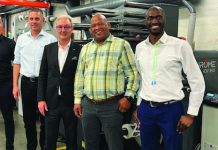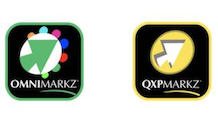With its branch office in picturesque Gordon’s Bay, production printing vendor Riso Africa saw an ideal opportunity to sponsor the local Riso Gaul Regatta which took place in Gordon’s Bay over the weekend of 5-7 September.
‘The event is a proven winner with clients and their families, resulting in an unusual day out in which many enjoy their first taste of the joy of sailing,’ said Riso marketing manager Sonia Anderson.
‘South Africans are always keen to try a little something different and with a sailing regatta, they definitely get that,’ said Anderson. ‘This marks the second year we’ve come on board as the naming sponsor of the Gaul Regatta, after a very successful event in 2013.’
The Regatta offered Riso’s guests the ability to get out on a sailing vessel to view the action up close; those who lacked sea legs had the option of enjoying the racing from the comfort of the Gordon’s Bay Yacht Club. ‘Many of our clients were very pleasantly surprised at just how remarkable it is to be on the water on a sailing vessel for the first time, along with their wives and children,’ said Anderson. ‘Being on a yacht also provides perspective on just how physically demanding sailing is.’
Riso Africa offers production printing solutions which have some unique differentiators – which also have something in common with sailing, continues Anderson. ‘Our devices use inkjet technology where most others are laser-based. That’s a fundamental advantage because Riso printing solutions use far less energy than any competing products.’
In light of South Africa’s energy challenges, this is significant as the cost of producing books, posters, manuals and other high-volume products is considerably reduced. It is also not necessary to get expensive (and increasingly difficult to source) three-phase electricity to power a Riso printer.
What’s that got to do with sailing? ‘Just like sailing yachts are efficient and have a very low impact on the environment, Riso printers consume up to 50% less energy than laser devices. Our printers also take up far less space and don’t generate the sort of heat which requires specialised air conditioning- and that adds up to helping companies keep costs under control in competitive environments,’ said Anderson.
Just as the advent of motorised boats hasn’t meant the end of wind-powered vessels, the continued advancement of the internet and digital technology doesn’t mean the end of printed material. ‘There is an evolution underway, but there remains very strong demand for printed products, whether for educational, advertising, leisure or other markets,’ said Anderson.
A Riso printer produced a souvenir book of photos on demand for guests, sailors and enthusiasts.





















